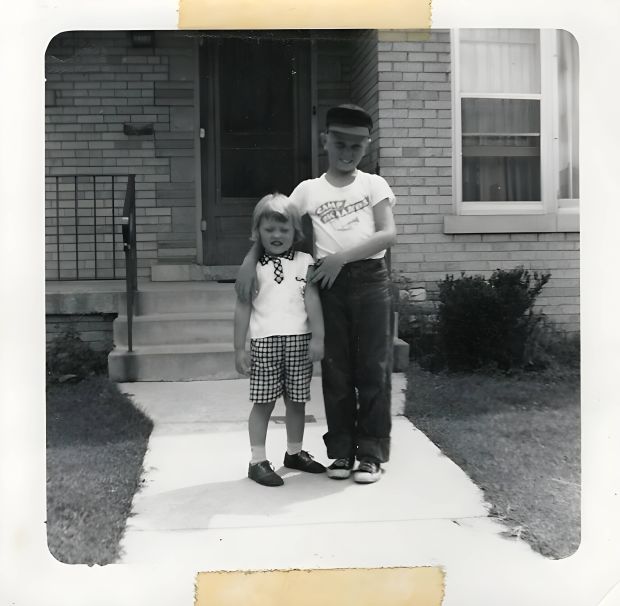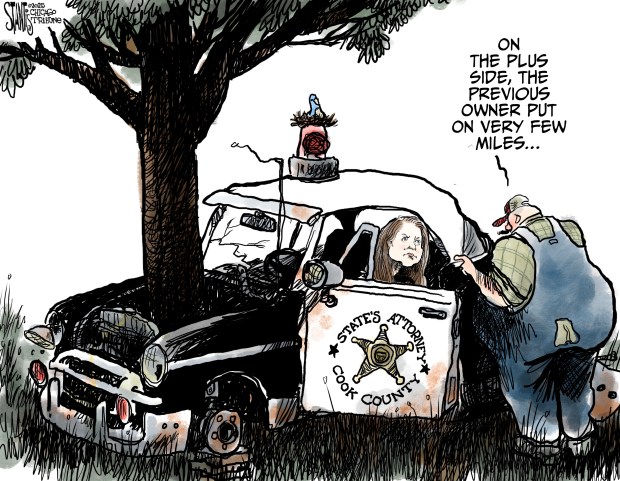Each year when the dog days of summer roll around, I long for the breezy shores of Lake Beulah at Camp Richards, near East Troy, Wisconsin.
It served as a Catholic summer camp for boys starting in 1949 until it closed in 1987. Every spring, the nuns at St. Bernadette’s in Evergreen Park would pass out brochures to take home to our parents so they could sign us up for Camp Richards.
I liked looking at the colorful pictures of the beach, the swim raft between the two long parallel docks, the row boats lined up on shore, the cowboy corral with a couple of dozen horses and the cool bunk beds where campers slept.
My classmate Joe Doyle and I could not resist the glossy pages of the brochure, and we immediately unsheathed our fountain pens to “customize” the photos and the ad copy: mustaches, beards and Dumbo ears on the camp counselors’ faces. And we crossed out nouns and action verbs in the brochure’s text, replacing them with our choicest scatological terms from our limited fifth grade vocabulary.
We thought it was hilarious when we passed the edited brochures around the room, especially if girls looked at them. But envy was also in play, since Joe and I knew we would never get to go. His old man drove a Silvercup Bread truck, and my father was a tile salesman, and tuition at Camp Richards was out of reach for our families.
Until, that is, the miracle of 1961: Our well-to-do Aunt Kay called my mother to ask if my brother James wanted to go to Camp Richards. She had signed up her two boys, but Billy could not make it, and Don would love it if his cousin could join him.
In my entire life up to that point, none of my brothers or sisters had ever left our home. So we were crabby and aimless the first day Jimmy was gone. After a week, we wondered if we’d ever see him again.
When he finally returned wearing a white T-shirt with “Camp Richards” stenciled in green letters, Patrick, Kenneth, Charlie, Kevin and I sat on the floor and on the bed while he unpacked the suitcase and uncoiled his adventure.
The second oldest in our family, James was a born storyteller. The amazements he described that day had so fired up our imaginations that we prevailed upon him to be the camp counselor while we “played” Camp Richards the rest of the day.
He turned off the lights and told us to shut our eyes as he closed the bedroom door, and we weren’t to open them till we heard from the kitchen his pretty fair impression of a trumpet playing reveille.
The day’s first activity was to select our favorite horse in the McGrath backyard, saddle up and hit the trail. Charlie picked Dynamite, the fastest horse in the corral. James allowed our sister Rosie to attend as the only girl at Camp Richards, and she wanted Candy for its gentle nature. Patrick gamely chose Fury, which James said was the horse who liked to buck.
After lunch, Mom let us fill the pool, an 8-foot-diameter inflatable, for Camp Richards’ freestyle races. In those days, we had to wait an hour after eating before swimming. So our “counselor” divided us into two teams for the “pugil stick” wars. We tied towels to the end of our bamboo fishing poles and started to whack away, until Kevin got hit hard in the ear and tried his best to be a good camper and not cry.
Following a “nature hike” through our unpaved alley, we built a tent in the yard with a tarp and clothesline, where after dark James told us a ghost story, “The Bloody Drapes,” while we stared at a citronella candle on top of an overturned bucket.
We played Camp Richards a lot that August, including on a rainy day when we shuffled around the basement in grocery boxes that served as our rowboats.
Last week, I was surprised when James recalled in an email that his experience at Camp Richards was unsettling.
“There were about 50 boys, and the only person I knew was Donny,” he said. “It was the first time I took a group shower. And we were forced to swim from one dock to the other, and I could not swim.
“We rode horses and I always needed help getting onto one, and whatever horse I had always bucked me a little.
“There were these boat battles with pugil sticks, and we had wars on land, too, white flags versus blue flags. When your opponent caught you and took your flag, you were out. I never lasted more than five minutes.
“But my counselor was kind. I think he knew I was the only poor kid there. If I stayed longer, I might have enjoyed it more, but I was real happy to come home when I did.”
The Shangri-la version that my brother created, however, was so real and appealing that years later, I felt I had actually attended Camp Richards.
It was an era predating the internet, cellphones and video games, when we cured summer’s doldrums with the power of imagination.
David McGrath is an emeritus English professor at the College of DuPage and author of the newly released book “Far Enough Away,” a collection of Chicagoland stories. Email him at profmcgrath2004@yahoo.com.
Submit a letter, of no more than 400 words, to the editor here or email letters@chicagotribune.com.




